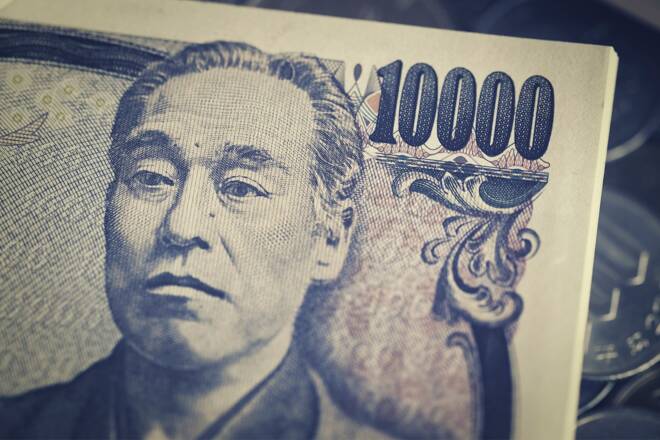Advertisement
Advertisement
Japanese Yen and Australian Dollar News: Japan Inflation and China GDP in Focus
By:
Key Points:
- Economists forecast Japan's Q4 rate hike; September inflation and wage growth will play pivotal roles in BoJ policy decisions.
- Stronger inflation driven by wage growth could push BoJ to act, pulling USD/JPY below 149.5 as rate hike expectations rise.
- China's economic slowdown could weaken Aussie demand, with AUD/USD likely dipping toward $0.66500 on soft Q3 growth figures.
Japan Inflation and the Bank of Japan Rate Path
On Friday, October 18, inflation figures from Japan will spotlight the USD/JPY pair and the Bank of Japan. Economists forecast the annual inflation rate to ease from 3.0% in August to 2.7% in September. Softer inflation could reduce expectations for a Q4 2024 BoJ rate hike.
Inflation forecasts align with Tokyo’s inflation numbers for September, which tempered bets on a Q4 2024 rate hike. The Tokyo CPI ex Food and Energy remained at 1.2%, well below the BoJ’s 2% target.
The BoJ’s focus is on demand-driven inflation, particularly in the services sector. September’s Jibun Bank Services PMI revealed that rising wages drove input costs higher. Higher wages could boost household spending, possibly fueling demand-driven inflation.
Hotter inflation could raise expectations about a possible BoJ rate hike, potentially pulling the USD/JPY below 149.5. Conversely, a softer reading may push the USD/JPY toward 151.
Expert Views on the Bank of Japan Rate Path
A Reuters Poll showed that 24 of 49 economists predict a BoJ rate hike by December. However, 39 of 45 economists expect rates to increase by 0.5% within Q1 2025. Wage negotiations will be another consideration. Rengo (Japanese Trade Union Confederation) is reportedly pushing for 5% plus wage hikes, similar to 2024.
Japanese Yen Daily Chart
The USD/JPY broke above the key 150 resistance level on Thursday. Later in the Friday session, FOMC members will impact buyer demand for the US dollar. Views on Thursday’s retail sales and labor market data and insights into the Fed rate path require consideration.
Support to delay rate cuts after November could drive the USD/JPY toward 151. Conversely, calls for November and December rate cuts may pull the USD/JPY below 149.5, a key support level.
China’s Economy and the RBA Rate Path
Shifting focus to the AUD/USD pair, China’s economic indicators will draw interest. Economists forecast China’s economy to expand by 4.5% year-on-year in Q3, down from 4.7% in Q2. Softer-than-expected growth could impact Aussie dollar demand.
Why does economic data from China affect the Aussie dollar? Australia has a trade-to-GDP ratio exceeding 50%, with one-third of Australian exports going to China. Weaker demand from China could slow the Aussie economy, affecting the RBA rate path and Aussie dollar demand.
Other data from China, including unemployment, retail sales, and industrial production, will highlight whether China’s economy gathered momentum heading into Q4. Positive trends could cushion the impact of weaker Q3 growth on the Aussie dollar.
Nevertheless, weaker-than-expected data could drag the AUD/USD toward $0.66500. On the other hand, better-than-expected figures may drive the pair to $0.67500.
Australian Dollar Daily Chart
Despite Thursday’s rally, the AUD/USD remains below $0.67. FOMC member speeches will likely overshadow US housing sector data in the US session.
Fed reaction to Thursday’s robust US retail sales and labor market data will influence AUD/USD trends. Hawkish comments could pull the AUD/USD toward the key support level at $0.66500. However, calls for rate cuts in November and December could push the AUD/USD toward $0.67500, a key resistance level. Breaking above $0.67 will be crucial for sustaining upward momentum.
Traders should remain alert. Today’s economic data from Japan and China will influence BoJ and RBA monetary policy guidance. Stay alert to real-time data, central bank views, and expert commentary to adjust your trading strategies accordingly. Keep ahead of the markets with our expert insights.
About the Author
Bob Masonauthor
With over 28 years of experience in the financial industry, Bob has worked with various global rating agencies and multinational banks. Currently he is covering currencies, commodities, alternative asset classes and global equities, focusing mostly on European and Asian markets.
Advertisement
